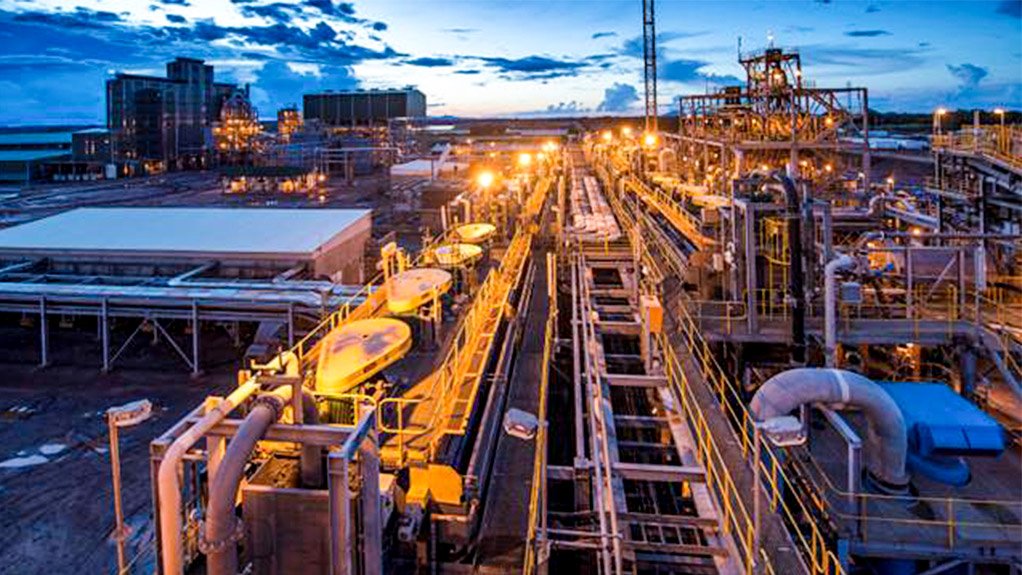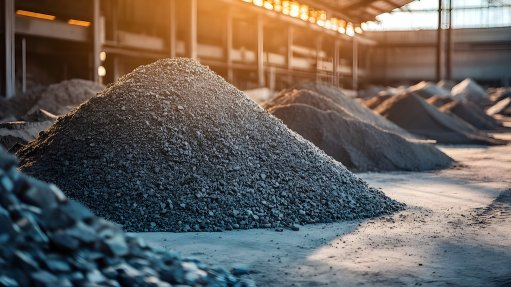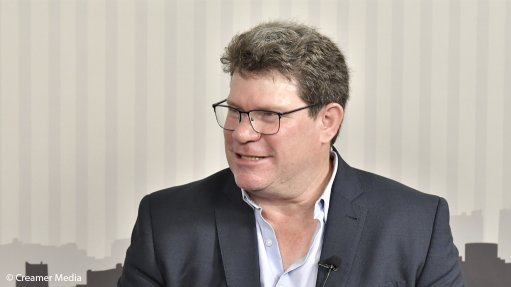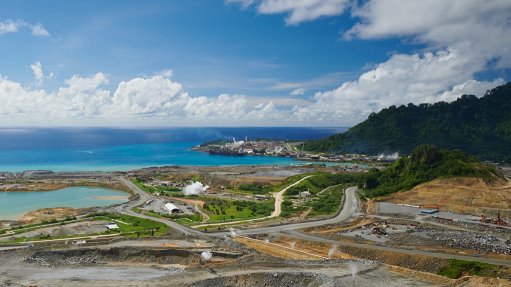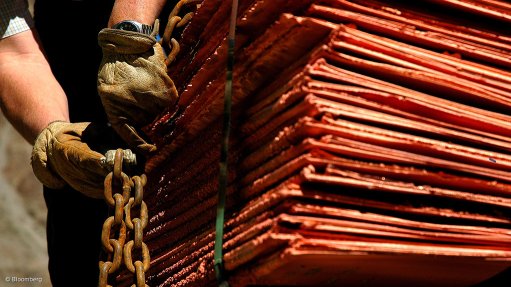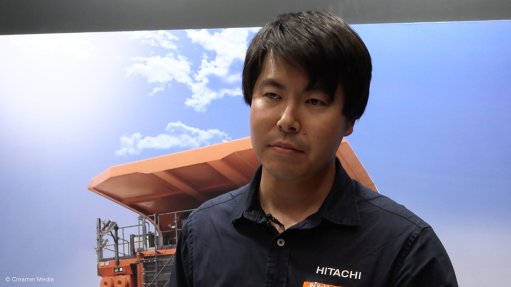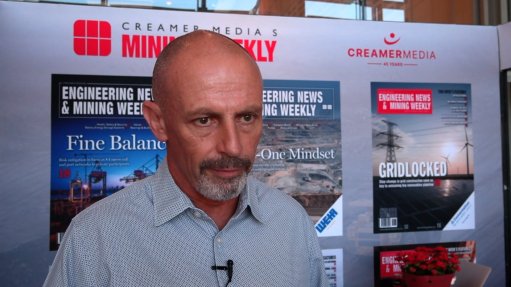Graphite market challenges made 2023 tough for Syrah but the future looks promising
Unforeseen graphite market developments in 2023 cast a shadow on ASX-listed Syrah’s Balama graphite project’s sales and production momentum, while highlighting the company’s strategic position in global battery anode and natural graphite markets, chairperson Jim Askew said on May 24 at the company’s AGM.
The lower production from Balama, in Mozambique, along with natural graphite sales and weighted average prices in 2023, compared with 2022, were impacted by synthetic graphite capacity expansion and government policy influence on the Chinese anode customer market, inhibiting Balama from achieving its full potential, he said.
“These market conditions have continued in 2024, making it hugely challenging to support Balama sales and production. Positively, China’s exports of value-added graphite products returned to normal levels from February and March 2024 with licences being granted,” Askew said.
Balama operated in-campaign plant operations through most of last year. Measures under this operating mode better positioned the company from an inventory management and cash flow perspective, considering volatile Chinese customer demand.
Although Balama’s operations were adapted, operating costs were higher than breakeven levels, Askew explained.
“Operational performance was stable with good product quality and grade. However, processing instabilities in stop-start plant operations impacted graphite recoveries. One of the largest on-site solar and battery systems in Africa commenced operations at Balama during the year, representing an important first step in abating the environmental impacts of our operations,” he said.
Syrah completed four Pemba breakbulk shipments during the year, highlighting opportunities for future logistics efficiencies as there were no constraints on sales caused by shipping from Mozambique, Askew said.
He added that production was being moderated from Balama until demand and price conditions warranted higher production levels and natural graphite sales were being made from the company’s inventory positions.
“We are ready to quickly increase operational activity and production should end-market conditions necessitate it. A sustainable cost position at Balama can be achieved as production rates increase, with uninterrupted operations underpinned by higher product sales,” Askew explained.
He noted that US, EU and China policy developments had resulted in much greater interest in Balama product purchases from ex-China anode customers and greater access to supply from battery manufacturers and automotive original-equipment manufacturers (OEMs) over the medium term.
“We are increasingly optimistic about demonstrating the tier-one potential of Balama as these higher-volume and -margin sales opportunities progress. Global penetration of electric vehicles (EVs) increases and the strategic upstream position we hold in Balama are fully recognised,” Askew said.
He added that “enormous progress” was made towards completing the Vidalia active anode material (AAM) facility in Louisiana, in the US, the foundation of Syrah’s downstream strategy.
Off-site equipment fabrication and on-site construction activities ramped up to peak intensity throughout 2023, with a focus on safety by the project team and Syrah’s contractors.
“Our operations team was fully established, focused on high local employment, in readiness for operations. Commissioning and operations of various process areas in the facility were completed through the latter part of 2023 and in January,” Askew said.
In early February, the company made a huge step forward with the commencement of commissioning AAM production from the commercial-scale facility.
“It is the culmination of over seven years of downstream technology development and over five years of product and facility development at Vidalia by Syrah. We completed a definitive feasibility study on a significantly larger expansion at Vidalia and are progressing development steps towards a final investment decision on this expansion,” Askew explained.
He said that high demand for Vidalia AAM was underpinned by Syrah being a first mover in commercial development for US integrated supply, progress in customer qualification processes, cost and quality advantages in vertical integration with Balama, and a leading environmental, social and governance (ESG) position.
Importantly, strong recognition of the need for US and EU automotive OEMs and battery manufacturers to have access to local independent supply has led to significant US government agency support for Syrah in delivering its vision and growth strategy, delivering mutual benefit through potential funding opportunities and direct and indirect tax incentives under the US Inflation Reduction Act.
“The extraordinary battery manufacturing capacity buildout in North America and strong market and government support for Syrah’s AAM capacity expansion present significant opportunities for our downstream business. Additionally, the slow pace of anode capacity development in Western regions provides an increasingly positive market position for Syrah as an ex-China AAM supplier,” Askew explained.
This year, Syrah completed a A$98-million equity raising and reached an agreement with long-term Syrah shareholder AustralianSuper to convert certain convertible notes maturing in October into shares.
“Our significant cash reserves and targeted funding for Balama from the US Development Finance Corporation provide significant liquidity to move through near-term volatile conditions in China towards sustainable cash flow operations at Balama, underpinned by increased ex-China natural graphite sales and commercial operations at Vidalia,” Askew said.
He added that the board would carefully consider a possible investment to expand Vidalia’s capacity and that this decision would only be undertaken with an appropriate funding structure and attractive business case.
“Syrah’s deep understanding of the operating environment and stakeholders relevant to the Balama operation in Mozambique has seen strong support, despite challenging market conditions. Our workforce, who are predominantly local, continue to develop well and are supportive of the flexibility that has been required,” Askew said.
He claimed that the security environment in Cabo Delgado province had been good with no issues affecting the company’s operations. Syrah’s ESG activities were fundamental to the company’s operating strategy for both Balama and Vidalia and had underpinned its activities since the first planning of the Balama mine.
Askew added that Syrah had commitments to local employment and development, with ongoing community projects under the Livelihood Development Programme, sustainable income generation in the district, and alignment to leading practice ESG frameworks.
“The Vidalia production facility and expansion project is providing clear economic benefits to Concordia Parish, in Louisiana, and Syrah is proactively engaging with its community to ensure this project and operations remain well supported,” he said.
Askew said corporate key performance indicators (KPIs) during a challenging year, along with moderate performance against personal KPIs, resulted in a meaningfully lower short-term incentive grant being awarded for 2023 compared with 2022.
Regarding the long-term incentive plan, Askew said that it is designed to align with shareholder value creation, and consequently no long-term incentives were vested at the end of 2023.
In 2020, the board of directors implemented a five-year performance and retention incentive (5YPRI), designed to consider the operational review and restructure in late 2019 and to ensure that selected personnel are remunerated in a manner which encourages high performance in driving shareholder value creation.
As much as 60% of the Year 4 tranche of the 5YPRI vested for key management personnel and 780,000 performance rights under the 5YPRI lapsed at the end of 2023, reflecting the balance of the achievement of Year 4 KPIs, Askew explained.
“Rewarding, motivating, and retaining the executive and senior leadership teams through market competitive remuneration and benefits is critical to support the future success of the company’s businesses, particularly given the unique knowledge and experience required to operate in this specialised market,” he said.
Article Enquiry
Email Article
Save Article
Feedback
To advertise email advertising@creamermedia.co.za or click here
Press Office
Announcements
What's On
Subscribe to improve your user experience...
Option 1 (equivalent of R125 a month):
Receive a weekly copy of Creamer Media's Engineering News & Mining Weekly magazine
(print copy for those in South Africa and e-magazine for those outside of South Africa)
Receive daily email newsletters
Access to full search results
Access archive of magazine back copies
Access to Projects in Progress
Access to ONE Research Report of your choice in PDF format
Option 2 (equivalent of R375 a month):
All benefits from Option 1
PLUS
Access to Creamer Media's Research Channel Africa for ALL Research Reports, in PDF format, on various industrial and mining sectors
including Electricity; Water; Energy Transition; Hydrogen; Roads, Rail and Ports; Coal; Gold; Platinum; Battery Metals; etc.
Already a subscriber?
Forgotten your password?
Receive weekly copy of Creamer Media's Engineering News & Mining Weekly magazine (print copy for those in South Africa and e-magazine for those outside of South Africa)
➕
Recieve daily email newsletters
➕
Access to full search results
➕
Access archive of magazine back copies
➕
Access to Projects in Progress
➕
Access to ONE Research Report of your choice in PDF format
RESEARCH CHANNEL AFRICA
R4500 (equivalent of R375 a month)
SUBSCRIBEAll benefits from Option 1
➕
Access to Creamer Media's Research Channel Africa for ALL Research Reports on various industrial and mining sectors, in PDF format, including on:
Electricity
➕
Water
➕
Energy Transition
➕
Hydrogen
➕
Roads, Rail and Ports
➕
Coal
➕
Gold
➕
Platinum
➕
Battery Metals
➕
etc.
Receive all benefits from Option 1 or Option 2 delivered to numerous people at your company
➕
Multiple User names and Passwords for simultaneous log-ins
➕
Intranet integration access to all in your organisation



